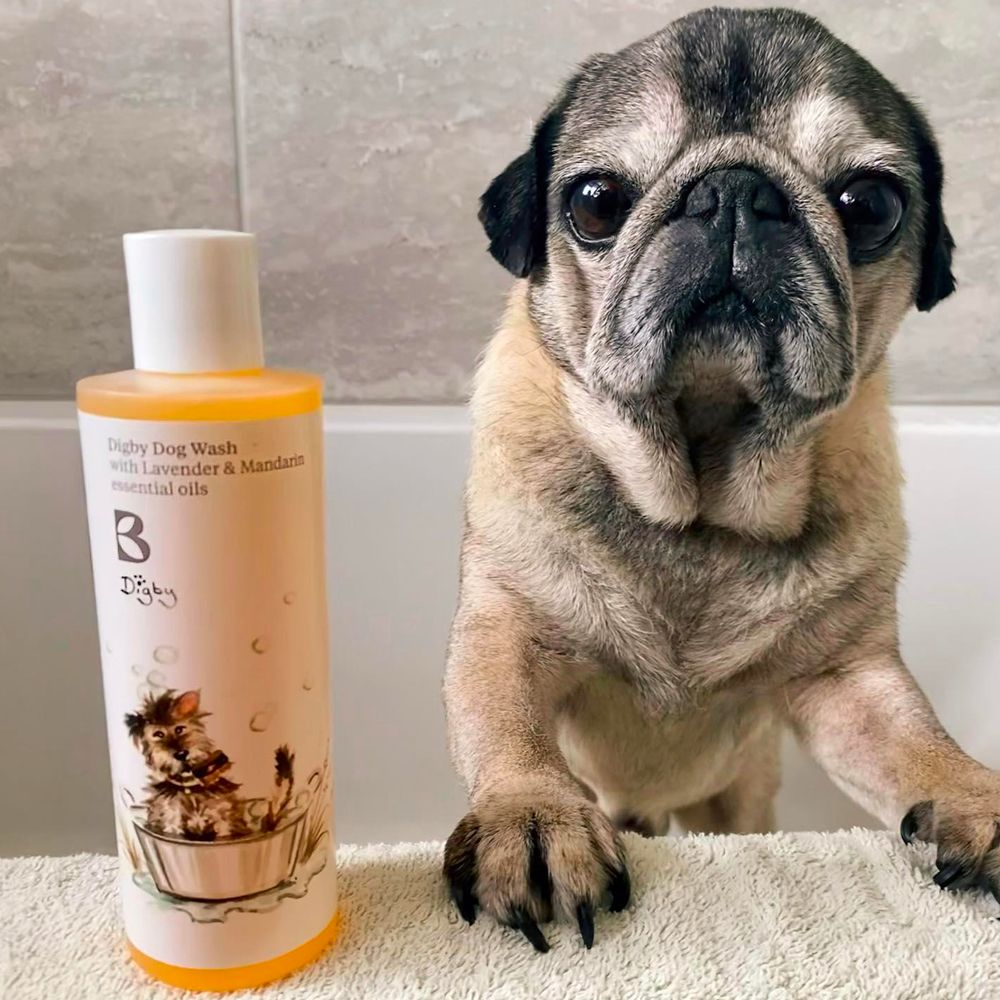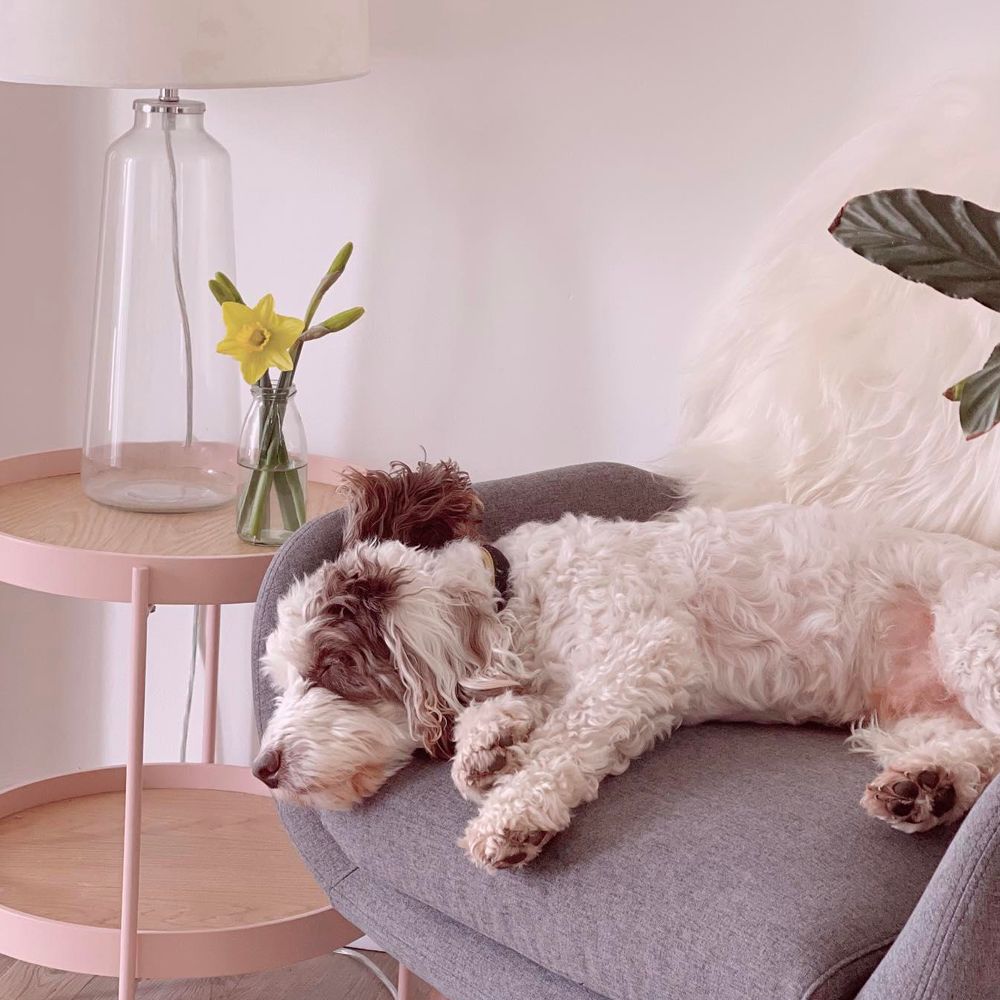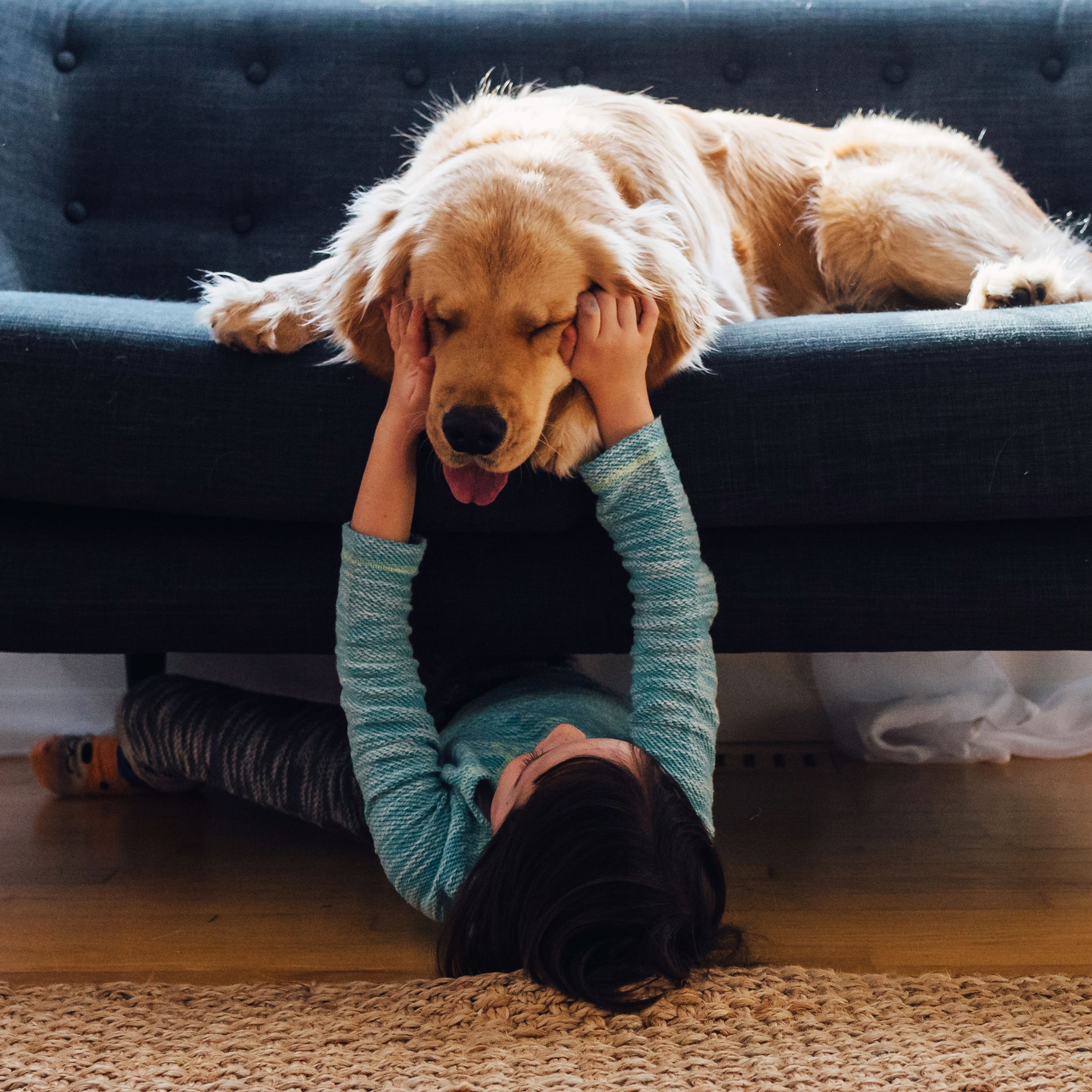Buying Guides
Dogs & Cats Buying Guide
Dogs
Getting a dog is an incredibly exciting time but can be daunting too, especially if you've never had a pet in the family before. Let our guide talk you through the key things you'll need to help your new furry friend feel happy and at home.
Product considerations
You've decided on the dog you want to bring into your family, but what should you have ready for your new arrival?
Beds
Size, material, and ease of cleaning are all key when selecting a bed for your dog.
Measure your dog and add on some room to allow for them stretching out. If in doubt it’s best to go up a size and give your dog some extra space rather than buying a bed that’s too small. Use these measurements to find a space in your home where your precious pooch can lay their head; somewhere warm and away from draughts is best. The more you get to know your four-legged friend, the quicker you'll learn if they prefer a spot in the middle of the action or somewhere where they can get some peace and quiet. Of course, you may want to spoil your dog and give them multiple options.
Choose a well padded and supportive bed that's made from comfortable material. Where possible, opt for a bed with a fully removable, washable cover for convenience. A water-resistant inner will help keep the bed (and your dog) smelling fresher for longer.
Bowls
When it comes to choosing what bowl to put your dog’s dinner in, there are multiple aspects to consider including material, size, durability and how easy it is to clean (even if your dog pretty much licks the bowl clean after every meal!).
You will need one bowl for food and one for water, both the correct size according to the breed of your dog and their food and water requirements. Also consider your dog’s shape. For example, dogs with long noses will benefit from a deeper bowl, whereas short, flat nose breeds will find a shallower dish easier to use. Long eared dogs will also appreciate deep bowls to prevent them from dipping their ears in their food or water!
When it comes to material choices, opt for a robust, heavy bowl to avoid it being pushed all over the floor by your eager dog at mealtimes and to prevent the bowl tipping up. A durable material that is non-chewable and dishwasher safe offers you both convenience and hygiene.
We also offer a range of smart feeding options which can be a great way to keep a closer eye on your pet's diet and health. Some can be controlled via your smartphone so you can feed your pet wherever you are, whenever you like.
Grooming Products
Not only does regularly grooming your pet help them look great, it also ensures that their skin and fur stay healthy too. Regular brushing is a must and depending on your breed, you can choose brushes that are designed to limit common issues such as tangling and shedding. We also offer a range of dog shampoos for when your pooch needs a more thorough clean; plus it'll leave them smelling great too!
Leads & Collars
Leads & collars are both essentials for owning a dog. Not only are collars fantastic for adding some character and charm to your dog’s looks, it gives you the ability to add identity tags with name and contact details in the event of your dog going missing. When fastening your dog's collar, make sure the sizing allows for the width of your finger to fit between the collar and your dog's neck for a comfortable fit.
A must have for those all-important walks, opt for a lead made from a durable material that'll survive whatever the weather. Some leads have adjustable lengths, which can be handy depending on where you're walking your dog and whether or not you want to keep them slightly closer to you.
Harnesses
When choosing a harness for your dog, it's important to pick one they're going to be comfortable in and that fits them well, without being too snug. Make sure you measure your dog before purchasing.
As harnesses pull on the whole body if your dog tugs (as opposed to all the pressure being on their neck if your lead was connected to their collar) they are a useful option for walks if you're trying to train your dog to stop pulling as you walk. Many harnesses come with various clips or even handles on top; this can be useful if your dog is off your lead and you need to pick them up.
Toys
Dog toys are an essential part of a dog’s life and are great for helping with their development. Each toy will offer something different. Toys like frisbees and balls are an ideal way to exercise your dog with a game of fetch; chew toys help teething dogs and discourage them from chewing on your chairs instead! Using things like ropes and tugs are also a good way to strengthen the relationship between you and your dog through play.
Guide to Grooming
All breeds of our four-legged friends require some form of regular grooming, including things like brushing, bathing and nail clipping. Along with regular checks of their skin, these are essential for keeping your dog both happy and healthy. You may need to schedule regular grooming appointments for your dog, but here are some tips on how you can establish a good grooming routine at home.
- As well as removing loose hair and dirt from your dog’s coat, regular brushing will help keep your dog’s coat glossy and shiny. This can help to extend the time between one bath and the next. How often you need to brush your dog’s hair will vary depending on their breed, but at the very least, weekly brushing is best.
- Unlike their human counterparts, dogs don't need to bathe too often. Most dogs only need bathing every few months (unless they roll in something unpleasant of course!). Dogs can actually lose some of the natural oils in their coat and get dry skin if they are bathed too often. When bathing your dog, ensure you use a shampoo specifically formulated for dogs as their pH is different to ours.
- You may need to trim your dog’s hair on occasion. Always take care with scissor blades near the skin and be especially cautious around sensitive areas such as their face, bottom or feet. Make sure your dog is feeling calm and laying down before starting and reward them with a nice treat afterwards.
- Once it gets to the point where you can hear your dog’s nails clicking on the floor, it’s time to give them a trim. At home, you can just trim the tips but if they need a more substantial cut than that you’ll need to take them to a professional groomer.
- Whenever you do groom your dog, always take the time to check their skin for any changes as well. Dogs can get allergic skin diseases which can cause itchiness, meaning you may notice your dog scratching or licking themselves more often or in specific places. Also, keep your eyes peeled for things like parasites such as ticks, fleas, and mites which can transfer diseases. If you find anything, get it treated right away.
Owning & caring for a puppy
Caring for a puppy is a big responsibility but offers a great opportunity to create a really special bond between you and your dog that will last a lifetime.
Stages of puppy growth through to adult
- As your precious pup grows, you’ll notice that what they do and what they need will change. Each stage of their growth offers its own unique challenges. It also presents an opportunity to make the bond between you and your dog even stronger, whilst still preparing them for life as an adult dog.
What products are necessary
- At first, your puppy will need to eat little and often, so get in plenty of poop bags as they will need to go to the toilet more frequently thanks to their eating pattern. As they grow, they start to develop their chewing instincts and go through teething, so invest in plenty of chew toys for them to help satisfy this need and soothe their gums.
What routine/lifestyle is necessary
- Unlike older dogs, puppies don’t need plenty of long walks but require plenty of guidance and training. It’s best if you can keep a regular routine consisting of lots of interactive play with you to help create a strong bond, as well as exercising little and often. Your puppy will also need lots and lots of sleep.
Tips and watchouts for owning a puppy
- Dogs respond best to reinforcement of positive behaviour, so try and take every opportunity to reward your dog’s good behaviour, even the smallest of things is worth a treat when they’re young to reinforce it. When you take your puppy out for the first time, it is likely they will be quite timid and want to stay close to you, but as you go out more you will notice your puppy get more and more confident and ready to explore the world.
Cats
Bringing a cat into your family and your home is incredibly exciting, but it's important to make sure you're ready. This guide will talk you through key products you'll need to make your new feline friend feel at home.
Product considerations
What do you need to get to prepare your home for your new four-legged friend?
Beds
We all know the importance of cat naps to our feline friends, so what sort of bed should you opt for? This will depend on your cat's preferences. If they're the sort of cat that likes to stretch out, a flat, duvet style will be best. If they prefer to snuggle up and be cosy, a more compact, doughnut-style bed will be more suitable.
Toys
Toys are a really important part of a cat's life and offer a way to keep them stimulated and entertained, while supporting the development of different skills. Try to have a selection for your cat and join in with them to help improve the strength of your bond too.
Pet Insurance
We know what matters when it comes to looking after your furry friends. And for added peace of mind, it’s worth considering our Pet Insurance.
- Insure your pet with us and you’ll get 24/7 access to the freephone vetfone™ helpline.
- The moment you need some advice, a fully trained veterinary nurse is only a call away.
- You can trust us to pay 92% of claims within just 5 days*, and our Plus and Premier cover comes with the reassurance of a Defaqto 5 Star Rating.
- *Claims data from Jan 2021 - May 2021.





